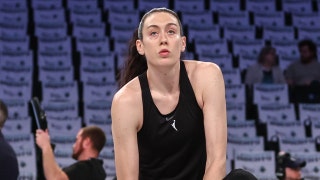It is said that Rome wasn't built in a day, and neither was Manchester United.
In fact, the Empire took hundreds of years to establish itself as a world power in all aspects of life.
Manchester United needed 26 years.
On Wednesday, the architect of the United empire, Sir Alex Ferguson, announced he is walking away from the game after 26 years at Old Trafford, leaving behind an unprecedented run of success that isn't likely to be duplicated.
When Ferguson, 71, arrived at the club in November 1986, Liverpool was the gold standard by which all other English clubs were measured.
But the Scotsman raised eyebrows upon his arrival when he said that his intention was to "knock Liverpool off their perch" as England's most successful club.
At the time, the title count was Liverpool 16, Manchester United 7.
Ferguson didn't exactly get off to a flying start at United either as it took until 1993 for him to deliver his first title, ending the team's 26-year drought.
However, United embarked on a staggering run of success after it got its first taste of silverware, with Ferguson lifting the league trophy in 12 of the next 20 seasons.
The title count now reads Manchester United 20, Liverpool 18.
During his time at United, Ferguson won 38 trophies in all, including the treble in 1999, and saw his name change from Alex Ferguson to Sir Alex Ferguson.
There were many things that made the boss such a historical success, but maybe the most important was his ability to adapt to personnel, styles and situations.
The team was built around players like Bryan Robson and Steve Bruce in the beginning of Ferguson's time, while he was able to transition to a side that revolved around Ryan Giggs, David Beckham and a strike partnership of Dwight Yorke and Andy Cole.
That group captured the treble in 1999, but Ferguson had to adapt to a more international roster with the changing of the climate in the Premier League at the turn of the century.
Chelsea became a financial heavyweight and attracted a wealth of foreign talent, which briefly threatened United's hold on the league with back-to-back titles in 2004-05 and 2005-06.
But the boss once again built a new core, this time centered around imports like Cristiano Ronaldo, Patrice Evra and Nemanja Vidic.
That group claimed three straight Premiership crowns and the Champions League title in 2008, while the evolution of the club continued.
Ronaldo was sold to Real Madrid for a record fee, but Ferguson filled that void with a group of new players as Javier Hernandez and Danny Welbeck established themselves as viable options.
Ferguson deserves credit for changing with the times and not getting caught up in one style.
He has shown an ability to win with different kinds of players in different eras, and has done so with a variety of tactics.
Over the years, he has built the United brand into one of the most recognizable in the world, and while he leaves a massive pair of shoes to fill, he also leaves the cupboard well stocked.
In a time when it is rare for a manager to remain with a club for more than a few seasons, Ferguson was one of the few constants in an ever-changing Premier League.
Last season was one of the most crushing for Ferguson as rivals Manchester City wrestled the title away from United on the final day of the season.
It is fair to wonder whether Ferguson would have walked away had results on the final day gone differently.
But maybe it is only fitting that he leaves with United perched firmly on top of the rest of the Premier League.
Mission accomplished.








































